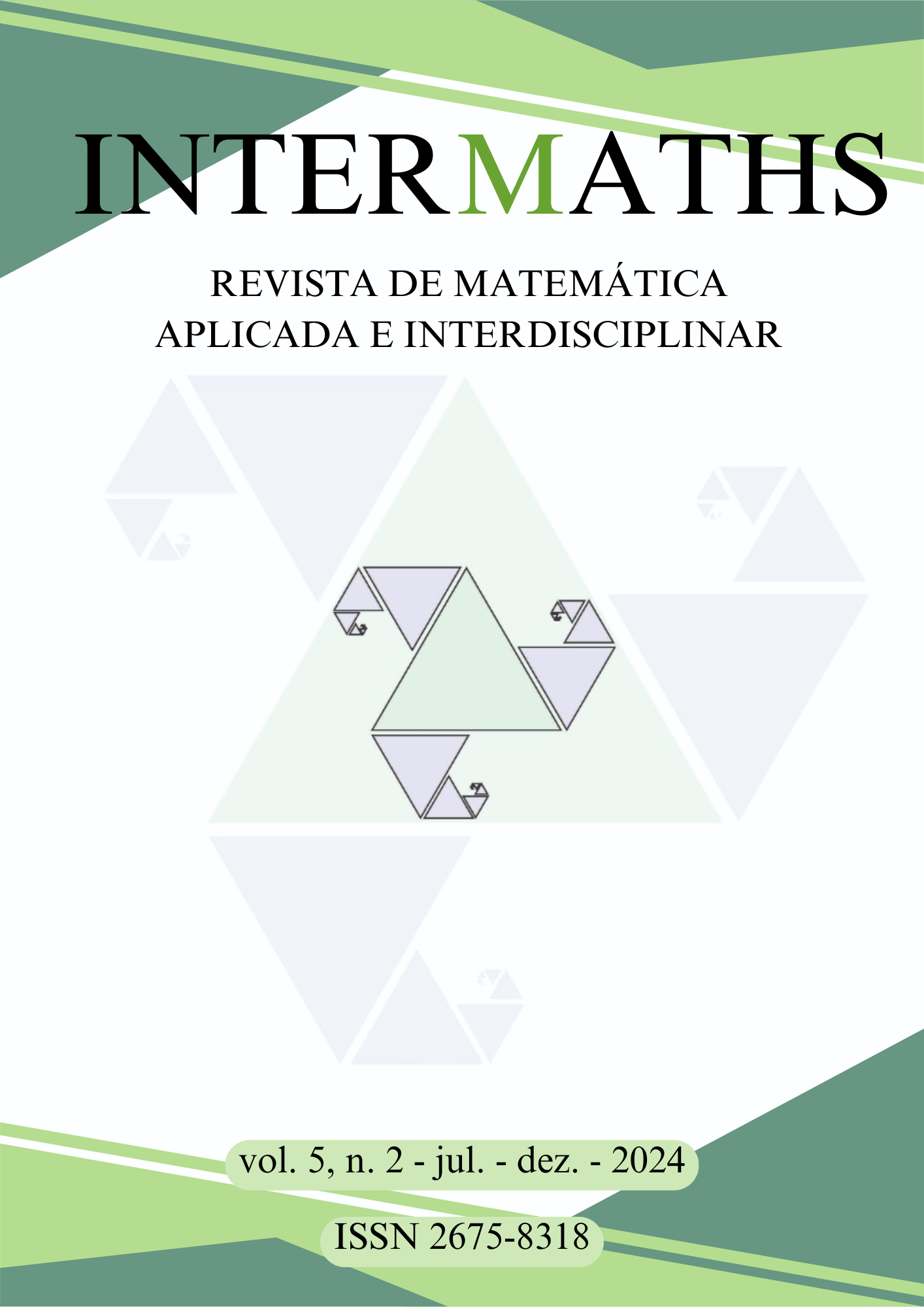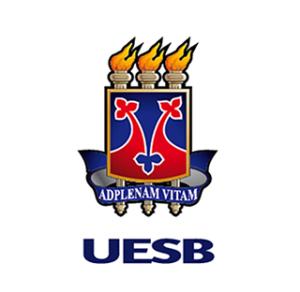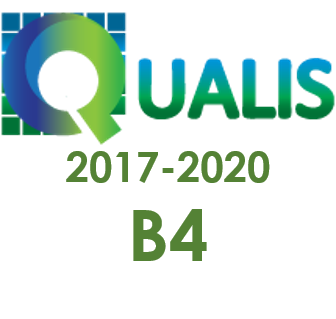Characteristics of Computational Thinking attributed by students of Bachelor's and Bachelor's degrees in Mathematics
DOI:
https://doi.org/10.22481/intermaths.v5i2.15372Keywords:
Educação Matemática, Pensamento computacional, Ensino superior, Licenciatura e Bacharelado em MatemáticaAbstract
When considering the possible relationships between Computational Thinking and Mathematics Education, especially those that may be developed by teachers in their professional activities, we ask ourselves: how is Computational Thinking understood by undergraduate mathematics students? Based on this question, we aim to discuss the results of an investigation into the characteristics related to Computational Thinking that are understood and developed by students on the Bachelor's and Bachelor's Degree courses in Mathematics at a public university in São Paulo. We assume as theoretical ideas the four pillars of Computational Thinking, namely: decomposition, pattern recognition, abstraction and algorithms – Brackmann (2017). The investigation, of a qualitative nature, was carried out through a questionnaire answered by nine students from the Degree and Bachelor's Degree in Mathematics at a public university in São Paulo. Among one of the results, we can emphasize that students identified and described aspects of Computational Thinking related, implicitly, to the four pillars of Computational Thinking.
Downloads
Metrics
References
Brackmann, C. P. (2017). Desenvolvimento do Pensamento Computacional através de atividades desplugadas na Educação Básica. Doutorado em Informática na Educação, Universidade Federal do Rio Grande do Sul.
Brasil. (2018). Base Nacional Comum Curricular (BNCC). Educação é a Base. Brasília, MEC/CONSED/UNDIME.
Brasil. (2022a). BNCC Computação - Complemento. Ministério da Educação. Conselho Nacional de Educação.
Brasil. (2022c). Resolução Nº 1, de 4 de outubro de 2022. Normas sobre Computação na Educação Básica - Complemento à BNCC.
Barbosa, L. L. S., & Maltempi, M. V. (2020). Matemática, Pensamento Computacional e BNCC: desafios e potencialidades dos projetos de ensino e das tecnologias na formação inicial de professores. Revista Brasileira De Ensino De Ciências E Matemática, 3(3). https://doi.org/10.5335/rbecm.v3i3.11841.
Wing, J. M. (2021). Pensamento computacional. Educação e Matemática, (162), 2-4.
Azevedo, G., & Maltempi, M. V. (2020). Processo de Aprendizagem de Matemática à luz das Metodologias Ativas e do Pensamento Computacional. Ciência & Educação (Online), 26, 1-18. https://doi.org/10.1590/1516-731320200061.
Seckel, M. J., Breda, A., Font, V., & Vásquez, C. (2021). Primary School Teachers’ Conceptions about the Use of Robotics in Mathematics. Mathematics, 9, 3186. https://doi.org/10.3390/math9243186.
Seckel, M. J., Vásquez, C., Samuel, M., & Breda, A. (2022a). Errors of programming and ownership of the robot concept made by trainee kindergarten teachers during an induction training. Education and Information Technologies, 27(3), 2955–2975. https: //doi.org/10.1007/s10639-021-10708-8.
Seckel, M. J., Breda, A., Farsani, D., & Parra, J. (2022b). Reflections of future kindergarten teachers on the design of a mathematical instruction process didactic sequences with the use of robots. EURASIA Journal of Mathematics Science and Technology Education, 18(10), em2163. https://doi.org/10.29333/ejmste/12442.
Sala-Sebastià, G., Breda, A., Seckel, M. J., Farsani, D., & Alsina, À. (2023). Didactic–mathematical–computational knowledge of future teachers when solving and designing robotics problems. Axioms, 12(2), 119. https://doi.org/10.3390/axioms12020119.
Salinas, C., Seckel, M. J., Breda, A., & Espinoza, C. (2024). Integrating Computational Thinking Into Mathematics Class: Curriculum Opportunities and the Use of the Bee-Bot. International Journal of Educational Methodology, 10(1), 137-149. https://doi.org/10.12973/ijem.10.1.937.
Guarda, G. F., & Duran, R. S. (2024). BNCC computação na educação infantil: entendimento, dificuldades e perspectivas dos docentes da rede pública de ensino. Revista Novas Tecnologias Na Educação, 22(1), 154–164. https://doi.org/10.22456/1679-1916.141541.
National Research Council. (2010). Report of a Workshop on the Scope and Nature of Computational Thinking. Washington, D.C.: The National Academies Press.
National Research Council. (2011). Report of a Workshop of Pedagogical Aspects of Computational Thinking. Washington, D.C.: The National Academies Press.
Wing, J. M. (2006). Computational thinking. Communications
Binotto, R. R., Maltempi, M. V., & Silva, R. A. B. da. (2023). Potencialidades da programação em Python para o desenvolvimento do pensamento criativo em matemática. Zetetike, 31(00), e023015. https://doi.org/10.20396/zet.v31i00.8672180.
Lima, C. A. dos S., & Silva, C. V. (2023). Ensino de Matemática com a Robótica: Uma PropostadeRecursoDidático.Intermaths, 4(2), 112-134.https://doi.org/10.22481/intermaths.
v4i2.13983.
Assis, L. M. E. de, Silva, M., & de Assis, R. A. (2024). Metodologias Ativas e a Modelagem Matemática para a Geração de Energia por meio de Placas Fotovoltaicas. Intermaths, 5(1), 67-83. https://doi.org/10.22481/intermaths.v5i1.14465.
Denning, P. J. (2017). Remaining Trouble Spots with Computational Thinking. Communications of the ACM, 60(6), 33–39. https://doi.org/10.1145/2998438.
Costa, L. D. S. (2016). Pensamento computacional no contexto escolar: um estudo exploratório baseado nas perspectivas dos professores do ensino médio. Licenciatura em Ciência da Computação, Universidade Federal da Paraíba.
Wing, J. M. (2008). Computational thinking and thinking about computing. Philosophical Transactions of the Royal Society A: Mathematical, Physical and Engineering Sciences, 366(1881), 3717-3725.
Wing, J. M. (2011). Computational thinking: What and why. The Link. News from the School of Computer Science at Carnegie Mellon University.
Barbosa, L. M., & Silva, R. S. R. da. (2019). Sobre pensamento computacional na construção de um Triângulo de Sierpinski com o GeoGebra. Pesquisa E Debate Em Educação, 9(1), 537–559. https://doi.org/10.34019/2237-9444.2019.v9.31129.
Valente, J. A. (2016). Integração do pensamento computacional no currículo da educação básica: diferentes estratégias usadas e questões de formação de professores e avaliação do aluno. e-Curriculum, 14(3), 864-897. https://doi.org/10.23925/1809-3876.2016v14i3p0864.
Borba, M. C., de Almeida, H. R. F. L., & de Souza Gracias, T. A. (2019). Pesquisa em ensino e sala de aula: diferentes vozes em uma investigação. Autêntica Editora.
Borba, M. C., & Araújo, J. L. (Orgs.). (2020). Pesquisa Qualitativa em Educação Matemática. 4a ed. Belo Horizonte: Autêntica.
Fiorentini, D., & Lorenzato, S. (2012). Investigação em Educação Matemática: percursos teóricos e metodológicos. 3a ed. Campinas: Autores Associados.
Bardin, L. (2016). Análise de conteúdo. Trad. Luís Antero Reto. 3a reimp. 1a ed. São Paulo: Edições 70.
Brasil. (2022b). Parecer CNE/CEB nº 2/2022, aprovado em 17 de fevereiro de 2022. Normas sobre Computação na Educação Básica – Complemento à Base Nacional Comum Curricular (BNCC).
Downloads
Published
How to Cite
Issue
Section
License
Copyright (c) 2024 Intermaths

This work is licensed under a Creative Commons Attribution 4.0 International License.
- Responsibility: The scientific content and the opinions expressed in the manuscript are the sole responsibility of the author(s).
- Copyrights: INTERMATHS.
- All content of Revista INTERMATHS/INTERMATHS journal is licensed under a Creative Commons - Atribuição 4.0 Internacional







